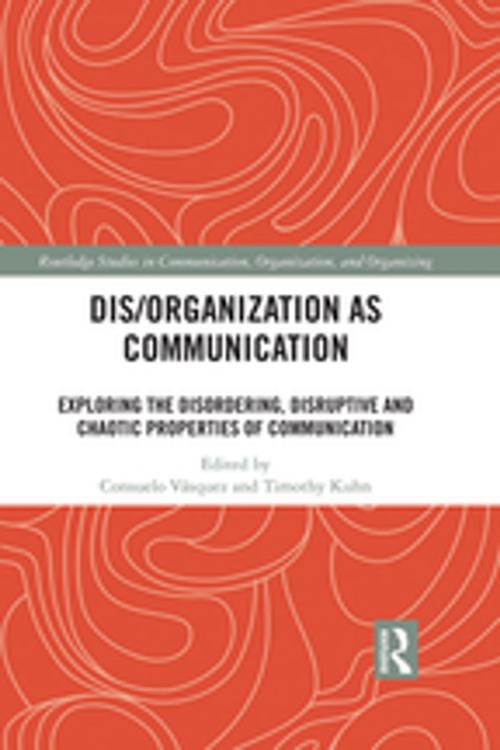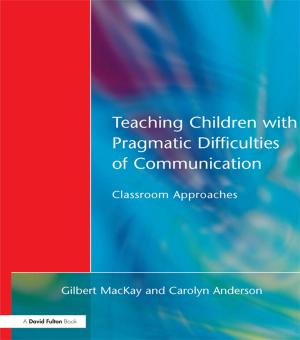Dis/organization as Communication
Exploring the Disordering, Disruptive and Chaotic Properties of Communication
Nonfiction, Reference & Language, Language Arts, Communication, Business & Finance, Human Resources & Personnel Management, Organizational Behavior| Author: | ISBN: | 9780429960550 | |
| Publisher: | Taylor and Francis | Publication: | March 13, 2019 |
| Imprint: | Routledge | Language: | English |
| Author: | |
| ISBN: | 9780429960550 |
| Publisher: | Taylor and Francis |
| Publication: | March 13, 2019 |
| Imprint: | Routledge |
| Language: | English |
This book accounts for the transformation of organizations in a post-bureaucratic era by bringing a communicational lens to the ontological discussion on organization/disorganization, offering a conceptual and methodological toolbox for studying dis/organization as communication.
Increasingly, scholars acknowledge that communication is constitutive of organization; because meaning is always indeterminate, communication also (and simultaneously) generates disorganization.
The book synthesizes the major theoretical trends and empirical studies in communication that engage with dis/organization. Drawing on dialectics, relational ontologies, critical theory, systems theory, and affect thinking, the first part of the book offers communicational explanations of how dis/organization unfolds. The second part of the book grounds this theoretical reflection, providing empirical studies that mobilize diverse methodological and analytical frameworks (e.g., ethnography, situational, interactional and genre analysis) for studying the practices of dis/organization. Overall, the book exposes organizations (and organizing processes) as significantly messier, irrational (or a-rational), and paradoxical than scholars of organization typically think. It also offers readers the conceptual and methodological tools to understand these complex processes *as *communication.
This book will be essential reading for scholars in organizational communication or management and organization studies, together with senior undergraduate and graduate students studying organizational communication, organizational discourse, discourse analysis (including rhetoric, semiotics, pragmatism, narratology) and courses in management studies. It will also be richly rewarding for organizational consultants, managers and executives.
This book accounts for the transformation of organizations in a post-bureaucratic era by bringing a communicational lens to the ontological discussion on organization/disorganization, offering a conceptual and methodological toolbox for studying dis/organization as communication.
Increasingly, scholars acknowledge that communication is constitutive of organization; because meaning is always indeterminate, communication also (and simultaneously) generates disorganization.
The book synthesizes the major theoretical trends and empirical studies in communication that engage with dis/organization. Drawing on dialectics, relational ontologies, critical theory, systems theory, and affect thinking, the first part of the book offers communicational explanations of how dis/organization unfolds. The second part of the book grounds this theoretical reflection, providing empirical studies that mobilize diverse methodological and analytical frameworks (e.g., ethnography, situational, interactional and genre analysis) for studying the practices of dis/organization. Overall, the book exposes organizations (and organizing processes) as significantly messier, irrational (or a-rational), and paradoxical than scholars of organization typically think. It also offers readers the conceptual and methodological tools to understand these complex processes *as *communication.
This book will be essential reading for scholars in organizational communication or management and organization studies, together with senior undergraduate and graduate students studying organizational communication, organizational discourse, discourse analysis (including rhetoric, semiotics, pragmatism, narratology) and courses in management studies. It will also be richly rewarding for organizational consultants, managers and executives.















